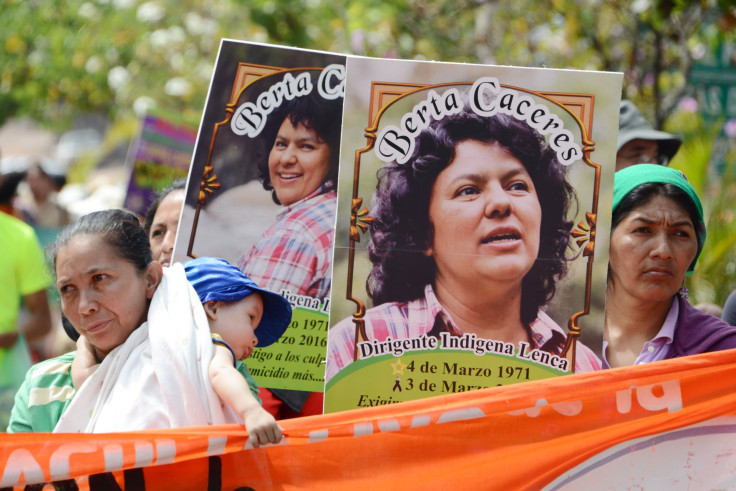Berta Cáceres Assassination Update: US-Trained Special Forces Linked To Honduras Environmental Activist's Killing?

The murder of Honduran environmental activist Berta Cáceres last year was orchestrated by the Honduran military intelligence members linked to the country’s U.S.-trained special forces, the Guardian reported Tuesday citing leaked court documents.
Cáceres, the winner of the Goldman environmental prize in 2015, received several death threats last year while opposing the construction of hydroelectric dam projects because of their adverse impact on the ancestral land of the indigenous Lenca people. Despite being under state protection, she was shot dead by armed gunmen just before midnight March 2, 2016. Following public outcry over the assassination, a yearlong investigation yielded eight arrests.
Out of the eight men arrested in connection with Cáceres’ murder, one current and a former military man, Maj. Mariano Díaz and Douglas Giovanny Bustillo, received special training in the United States. A third former military man arrested in the case, special forces sniper Sgt. Henry Javier Hernández reportedly testified that he and Bustillo made several trips to Cáceres’ hometown of La Esperanza, in the weeks before her death. Prosecutors said cell phone records revealed in court documents also suggest coded references to the murder.
“The murder of Berta Cáceres has all the characteristics of a well-planned operation designed by military intelligence, where it is absolutely normal to contract civilians as assassins….It’s inconceivable that someone with her high profile, whose campaign had made her a problem for the state, could be murdered without at least implicit authorization of military high command,” an anonymous legal source close to the investigation told the Guardian.
The involvement of Honduran military in Cáceres’ murder was also alleged last year when it was reported that a former Honduran soldier claimed to have seen her name on a hitlist that included names and photographs of activists to be eliminated by U.S.-trained units.
Violence against social activists has reportedly increased since the 2009 military coup d’état, which overthrew populist Honduran President Manuel Zelaya. Around 120 people, who nongovernmental organization Global Witness characterized as “ordinary people who took a stand against dams, mines, logging or agriculture on their land,” have been killed since 2010.
The U.S. State Department also noted serious human right violations such as extrajudicial killings in Honduras. However, the U.S. continues to aid Honduras through military and police support. Last year, the United States approved $18 million in security aid to the Central American country.
© Copyright IBTimes 2024. All rights reserved.






















